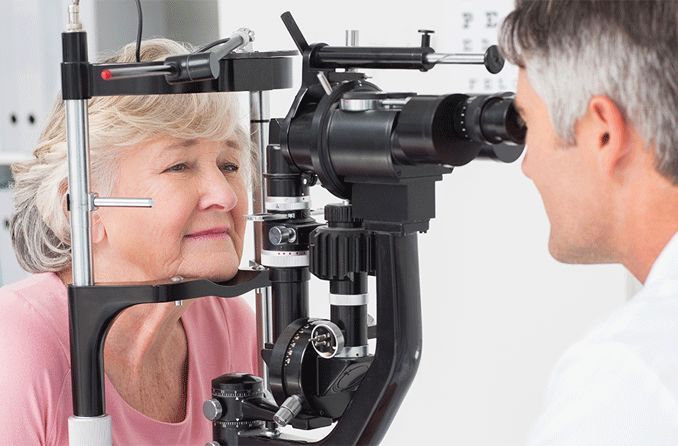8 tips on how to protect your eyes and prevent eyesight loss

Protecting your eyesight is one of the most important things you can do to help maintain your quality of life.
The leading causes of blindness and low vision are age-related diseases such as macular degeneration, cataract, diabetic retinopathy and glaucoma.
Here are some tips to help you avoid vision loss from these age-related eye problems.
Tips for protecting your vision
1. Find out if you are at higher risk for eye diseases.
Be aware of your family's health history. Do you or any of your family suffer from diabetes or have a history of high blood pressure? Are you over age 60? Any of these traits increase your risk for sight-threatening eye diseases.
2. Have regular physical exams to check for diabetes and high blood pressure.
If left untreated, these diseases can cause eye problems. In particular, diabetes and high blood pressure can lead to vision loss from diabetic retinopathy, macular degeneration and eye strokes.
3. Look for warning signs of changes in your vision.
If you start noticing changes in your vision, see your optician immediately. Some warning signs to look for are double vision, hazy vision and difficulty seeing in low light conditions.
Other signs and symptoms of potentially serious eye problems that warrant immediate attention include red eyes, frequent flashes of light, floaters, and eye pain and swelling.
4. Exercise frequently.
Studies suggest that regular exercise — such as brisk walking — can reduce the risk of age-related macular degeneration by up to 70 percent.
5. Protect your eyes from harmful UV light.
When outdoors during the daytime, always wear sunglasses that shield your eyes from 100 percent of the sun's harmful ultraviolet rays. This may help reduce your risk of cataracts, pinguecula and other eye problems.
6. Eat a healthy and balanced diet.
Research has shown that antioxidants can possibly reduce the risk of cataracts. These antioxidants are best obtained from eating a diet containing plentiful amounts of fruits and colourful or dark green vegetables.
Studies have also shown that eating fish rich in omega-3 fatty acids may reduce your risk of developing macular degeneration.
Also, consider supplementing your diet with eye vitamins to make sure you are getting adequate amounts of the nutrients you need to keep your eyes healthy.
7. Have an annual eye exam.
A comprehensive eye exam can determine your risk for major eye diseases such as diabetic retinopathy, which has no early warning signs or symptoms.
An eye exam can also ensure that your prescription for glasses or contact lenses is up to date and that you are seeing as clearly and safely as possible.
8. Don't smoke.
The many dangers of smoking have been well documented. When it comes to eye health, people who smoke are at greater risk of developing age-related macular degeneration, cataracts, uveitis and other eye problems.
In addition to following these guidelines, be sure to wear safety glasses when working with tools or participating in active sports to help prevent eye injuries that could potentially cause permanent vision loss.
It's true that following these steps is no guarantee of perfect vision throughout your lifetime. But maintaining a healthy lifestyle and having regular eye exams will certainly decrease your risk of developing a sight-stealing eye problem that otherwise might have been prevented.
WANT TO PROTECT YOUR EYESIGHT AS YOU AGE? Find an optician near you. Get your eyes checked.
Page published on Thursday, 27 June 2019






